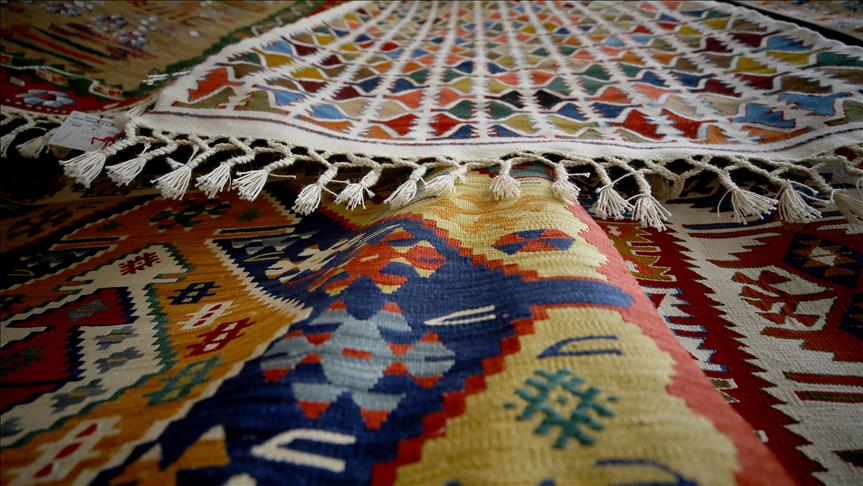From Central Asia to Anatolia: Turkish 'Bayat rug'
Bayat rugs in western Turkey have been a symbol of cultural richness that Turks carried from Central Asia to Anatolia

By Canan
AFYONKARAHISAR, Turkey
Oghuz Turks in western Turkey have been keeping thousands of years old rug weaving tradition alive with the support of the district governorate.
Bayat rug, produced of sheep wool and madder root with traditional motifs, reflects the Anatolian culture’s richness.
Bayat rug in Turkey’s Afyonkarahisar city
The special herbs for the rug are collected from the
Speaking to Anadolu Agency, Ahmet Nuri Demir, the deputy district governor of Bayat, said the rug weaving has been a tradition for all Turk tribes, but especially developed in Bayat tribe.
“Wool threads are turned into handicrafts carpets in the hands of the women of Bayat. The most important feature of Bayat rugs is that they are
Demir also added that the rug motifs reflect the emotions of the women who made the rugs.
Anadolu Agency website contains only a portion of the news stories offered to subscribers in the AA News Broadcasting System (HAS), and in summarized form. Please contact us for subscription options.

